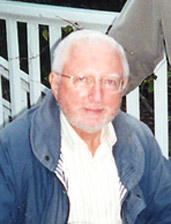Paul Leaverton, PhD
Born: 1934

Paul Leaverton was early engaged as a statistician in CVD epidemiology and played a central leadership role at the National Center for Health Statistics and at NHLBI for the decade 1974-84. He was educated at Iowa State, receiving his MS in 1961 and PhD in Statistics in 1963. He joined the faculty at the University of Iowa after service in the USPHS, including training in the early Epidemic Intelligence Service. At Iowa he was involved in the origins of the Muscatine Children’s Study. Among his later major contributions was administration of the Community Health Surveys of NHLBI and the design and promotion of the ARIC program, Atherosclerosis Research in Communities, a sequel of the Framingham Study carried out among diverse populations and begun in the early 1980s.
In addition to a popular self-instruction manual in Biostatistics, now in its 5th edition, Leaverton made original contributions to the charting and analysis of CVD and total mortality trends from international data and developed modern computer mapping of geographic mortality differences and trends. He completed his academic career as Chair of Epidemiology and Biostatistics at the University of South Florida, retiring in 2001.
For many years as a consultant, Leaverton has guided researches in blood diseases in
Thailand, from whence he has also been an advisor and activist in the independence movement vis a vis the military government of Myanmar. (HB)
Sources
Leaverton. P.E. 1995. A Review of Biostatistics: A Program for Self-Instruction, 5th Edition, Boston: Little, Brown, and Company.
Schocken, D., Arrieta, M., Leaverton, P.E., and Ross, E. 1992. ‘Prevalence and mortality of congestive heart failure in the United States’. J Am College of Cardiology, 20:2, 301-6.